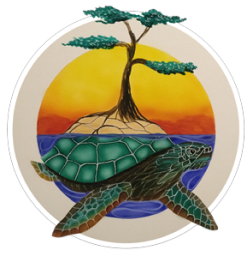In the Fall of 2012, two of our team members — Leona Makokis and Ralph Bodor — were asked to teach a graduate-level research course for the Faculty of Social Work, University of Calgary.
As we prepared for the course, we drew on our previous research experience with Indigenous communities. We became less and less comfortable with the way Indigenous Research Methodologies are described both within the MSW curriculum — locally and nationally — and in the research literature. We understood that doing research is a knowledge-seeking/problem-solving process that leads to conclusions about truth and meaning. We recognized that research processes are usually dichotomized into qualitative and quantitative approaches, with a variety of more specific research methodologies generally understood as subsets of these two dominant approaches. Indigenous research has been, for the most part, understood as a subset of qualitative research, such as participatory action research, and usually mentioned as a response to colonization and/or as part of anti-oppressive social work practice rather than a distinct body of knowledge, research practice and wisdom-seeking with its own truths and meanings.
We kept asking ourselves “If we were to understand Indigenous research as a distinct methodology (or methodologies) within an Indigenous worldview, what shape would that understanding take?” Thinking about this led us to the second question “And how would we get to that place of truth?” We realized we were asking a two-part question: “What determines truth and how do you arrive at a place of truth within an Indigenous universe?” These two questions were the first steps of an intense journey that began over fifteen years ago, reached this nexus in 2012, has continued for the past seven years, and will continue long into the future, teyimkosiyani (if the Creator wills it). We have learned more than can be included in one publication (a chapter in our book). After a great deal of discussion and ceremony, we have chosen to share a few of the teachings/learnings that we feel are most significant.
We were supported by the ancestors, the communities, our team, and families, and two funding grants as we came to understand the teachings and learnings we share in this chapter. We honour the Elders, the knowledge-keepers and the wisdom-holders from University nuhelot’įne thaiyots’į nistameyimâkanak Blue Quills, from the traditional territory of the Siksika, Kainai, Piikani, Iyarhe Nakoda and the Tsuut’ina Nations (Treaty 7) as well as the Métis Nation of Region 3, and from the traditional homelands of the First Nations, Métis and Inuit peoples of Treaty 6 territory who shared their stories, their teachings, their ceremonies and their languages with us. The highly appreciated grants that provided the necessary funding for the project came from the Urban Aboriginal Knowledge Network (through the University of Northern British Columbia) and an Insight Development Grant from the Social Sciences and Humanities Research Council of Canada. We also honour our wisdom-seeking team members who worked so hard on this project, which includes teachers, students, and graduates — some Indigenous and some non-Indigenous — all united by a passion for wisdom-seeking and knowing/doing.
There are many universes, and one of the greatest gifts we received has been the opportunity to begin to understand — and be allowed to begin to explore — one Indigenous universe. “An Indigenous universe” — it’s difficult to express in written words what that means. Imagine all that is known in the Western universe and then realize, accept, and understand that there is another universe — an Indigenous universe — that holds an equivalent level of knowledge and understanding. Indigenous health, science, geography, economics, and governance — all these areas and many more contain knowledge and understanding that is exclusively Indigenous. Specific Indigenous communities have similar or different teachings in each area. We have come to understand the existence of side-by-side universes — for everything that is known in the Western universe, there is a parallel knowing in an Indigenous universe. We absolutely do not claim to know everything in either universe, but we do know that both exist, and both include many and varied ways of understanding, knowing, and doing that live and operate respectively in each universe. We have also noticed that the Western universe is, for the most part, profoundly unaware of the knowledge and understanding that lives in the many and varied Indigenous universes. In contrast, and not surprisingly in the colonial context, Indigenous universes appear to have an extensively lived awareness of Western beliefs, values, and worldviews.
The learnings from this wisdom-seeking project are shared in a book chapter that has QR codes embedded throughout the text that link to videos of the Elders and wisdom-holders sharing teachings and stories. The book chapter can be found in Chapter 1: “iyiniw tâpwêwin ekwa kiskeyitamowin” in our book “ohpikinâwasowin: Growing a Child”.

